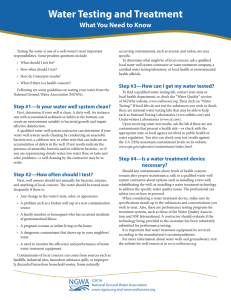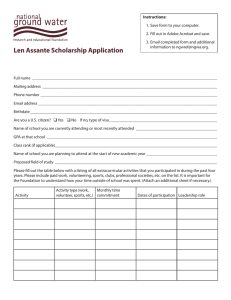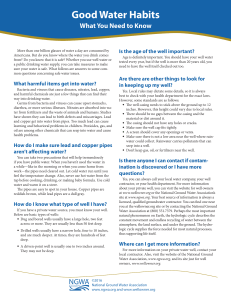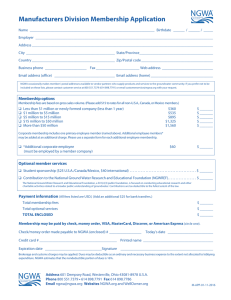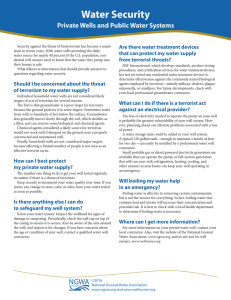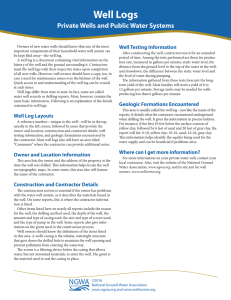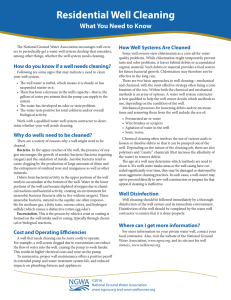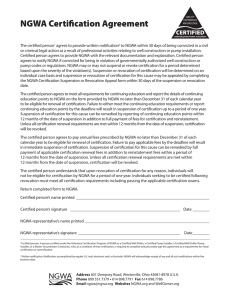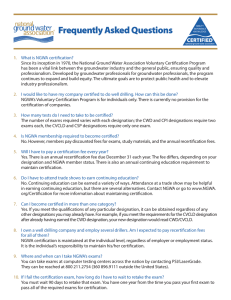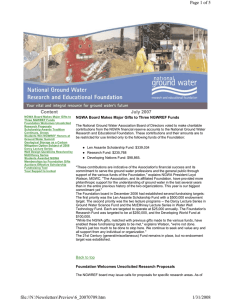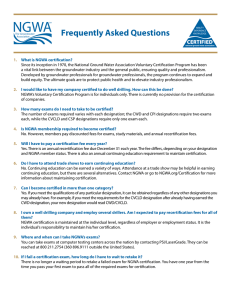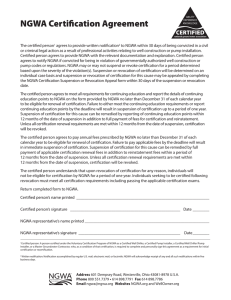Is Your Water Safe? What You Need to Know Nitrate/Nitrite Test
advertisement
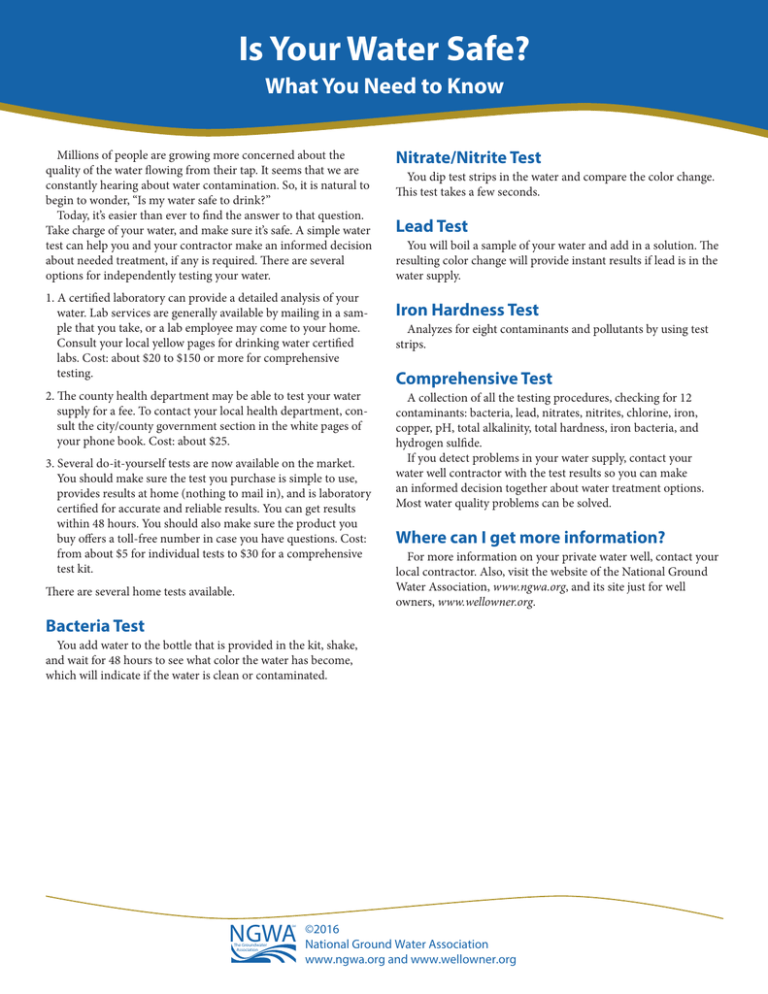
Is Your Water Safe? What You Need to Know Millions of people are growing more concerned about the quality of the water flowing from their tap. It seems that we are constantly hearing about water contamination. So, it is natural to begin to wonder, “Is my water safe to drink?” Today, it’s easier than ever to find the answer to that question. Take charge of your water, and make sure it’s safe. A simple water test can help you and your contractor make an informed decision about needed treatment, if any is required. There are several options for independently testing your water. 1. A certified laboratory can provide a detailed analysis of your water. Lab services are generally available by mailing in a sample that you take, or a lab employee may come to your home. Consult your local yellow pages for drinking water certified labs. Cost: about $20 to $150 or more for comprehensive testing. 2. The county health department may be able to test your water supply for a fee. To contact your local health department, consult the city/county government section in the white pages of your phone book. Cost: about $25. 3. Several do-it-yourself tests are now available on the market. You should make sure the test you purchase is simple to use, provides results at home (nothing to mail in), and is laboratory certified for accurate and reliable results. You can get results within 48 hours. You should also make sure the product you buy offers a toll-free number in case you have questions. Cost: from about $5 for individual tests to $30 for a comprehensive test kit. There are several home tests available. Nitrate/Nitrite Test You dip test strips in the water and compare the color change. This test takes a few seconds. Lead Test You will boil a sample of your water and add in a solution. The resulting color change will provide instant results if lead is in the water supply. Iron Hardness Test Analyzes for eight contaminants and pollutants by using test strips. Comprehensive Test A collection of all the testing procedures, checking for 12 contaminants: bacteria, lead, nitrates, nitrites, chlorine, iron, copper, pH, total alkalinity, total hardness, iron bacteria, and hydrogen sulfide. If you detect problems in your water supply, contact your water well contractor with the test results so you can make an informed decision together about water treatment options. Most water quality problems can be solved. Where can I get more information? For more information on your private water well, contact your local contractor. Also, visit the website of the National Ground Water Association, www.ngwa.org, and its site just for well owners, www.wellowner.org. Bacteria Test You add water to the bottle that is provided in the kit, shake, and wait for 48 hours to see what color the water has become, which will indicate if the water is clean or contaminated. NGWA SM The Groundwater Association ©2016 National Ground Water Association www.ngwa.org and www.wellowner.org
